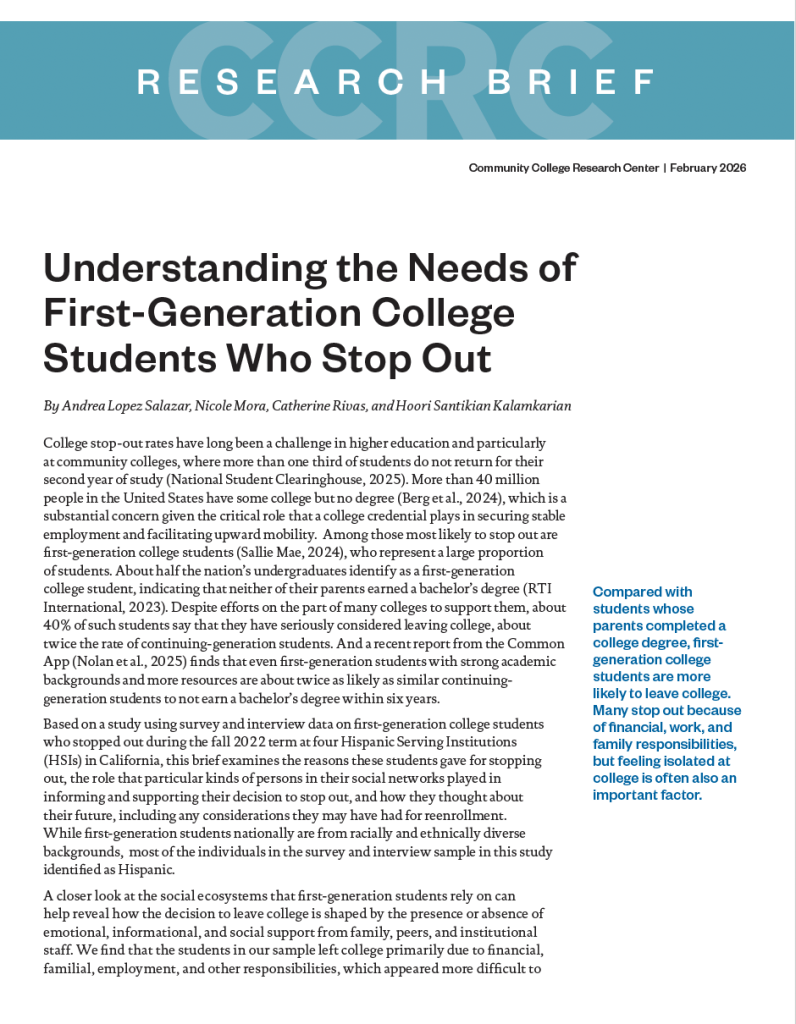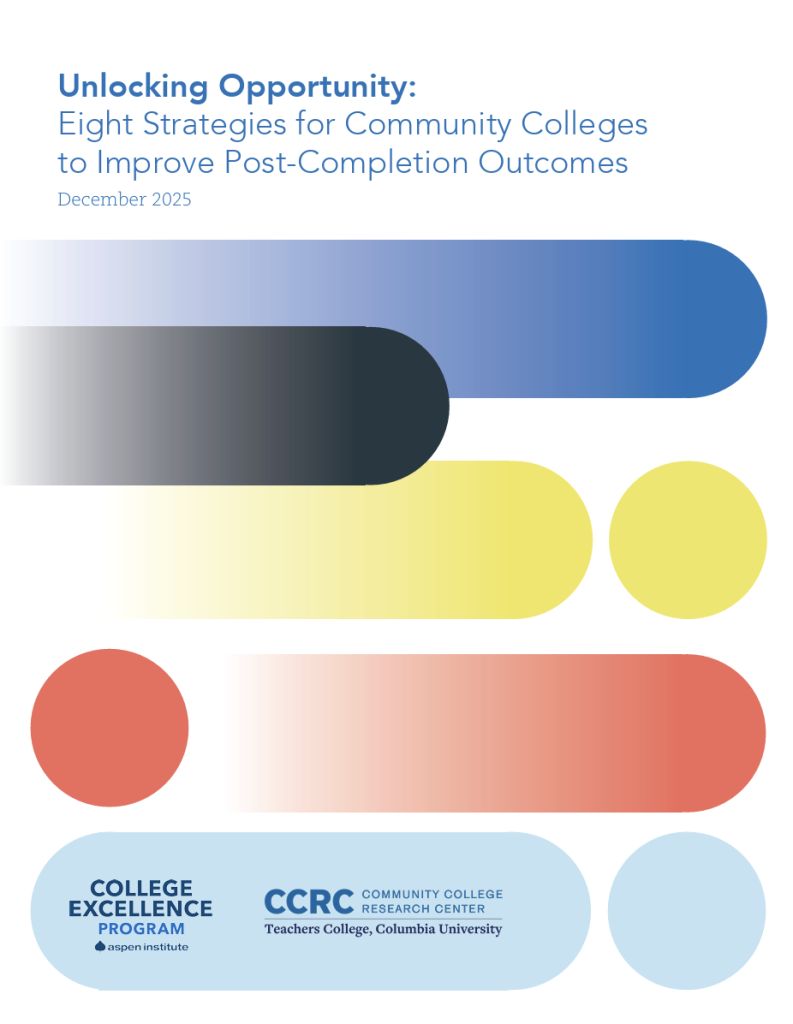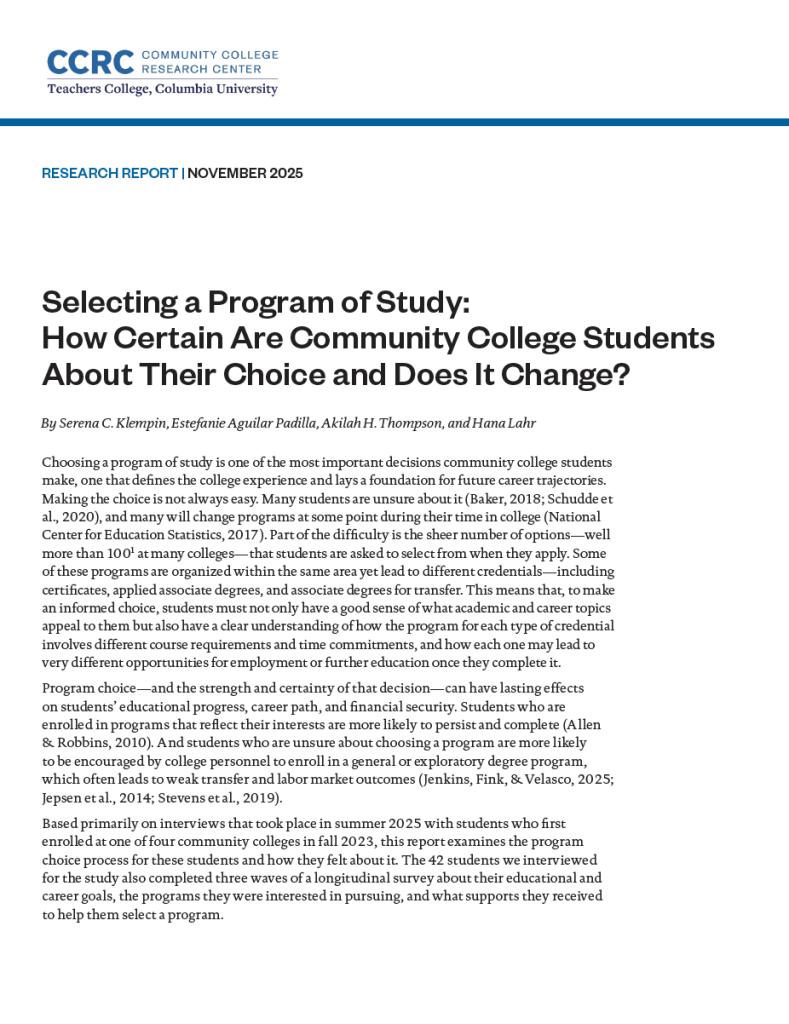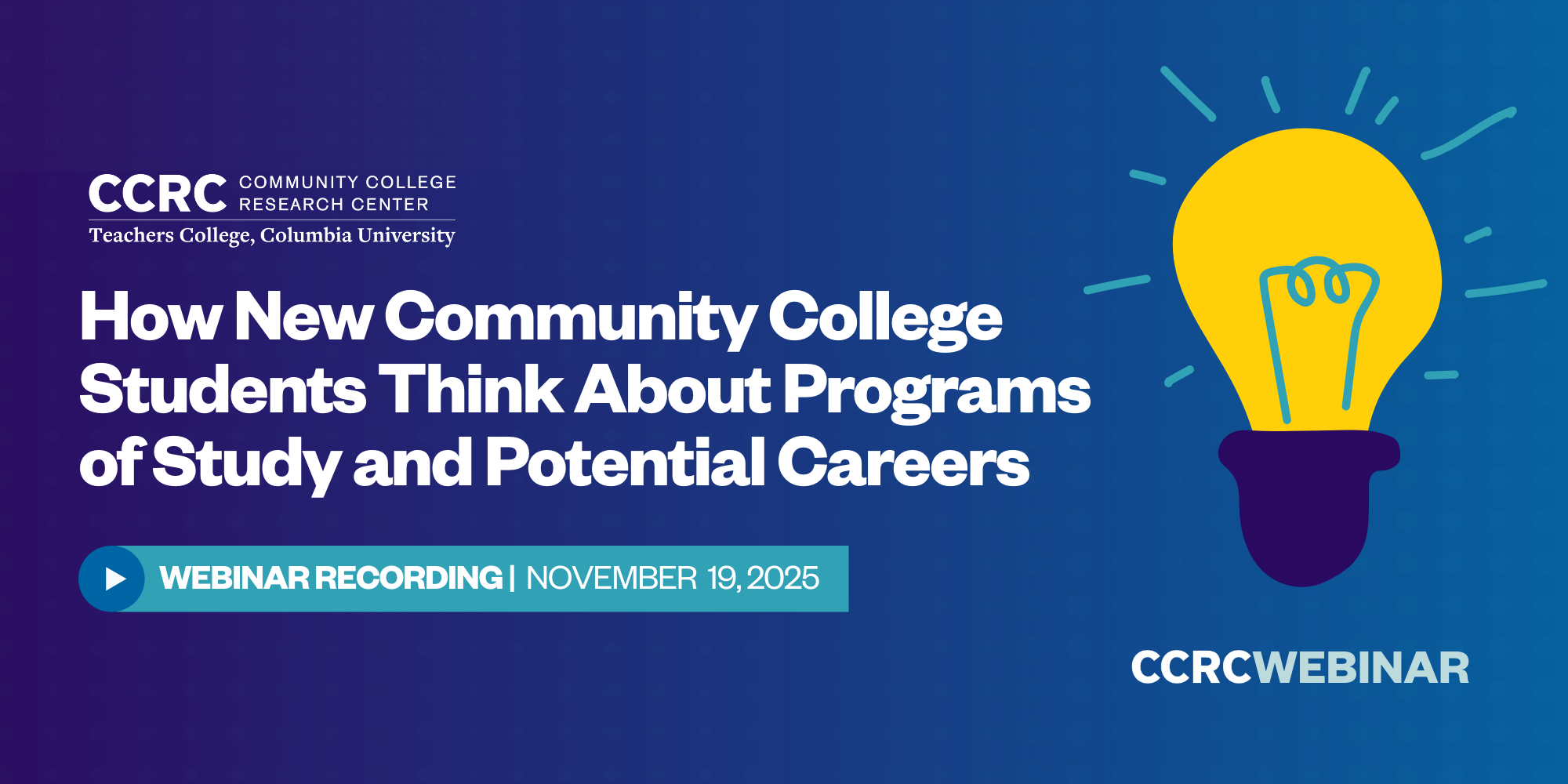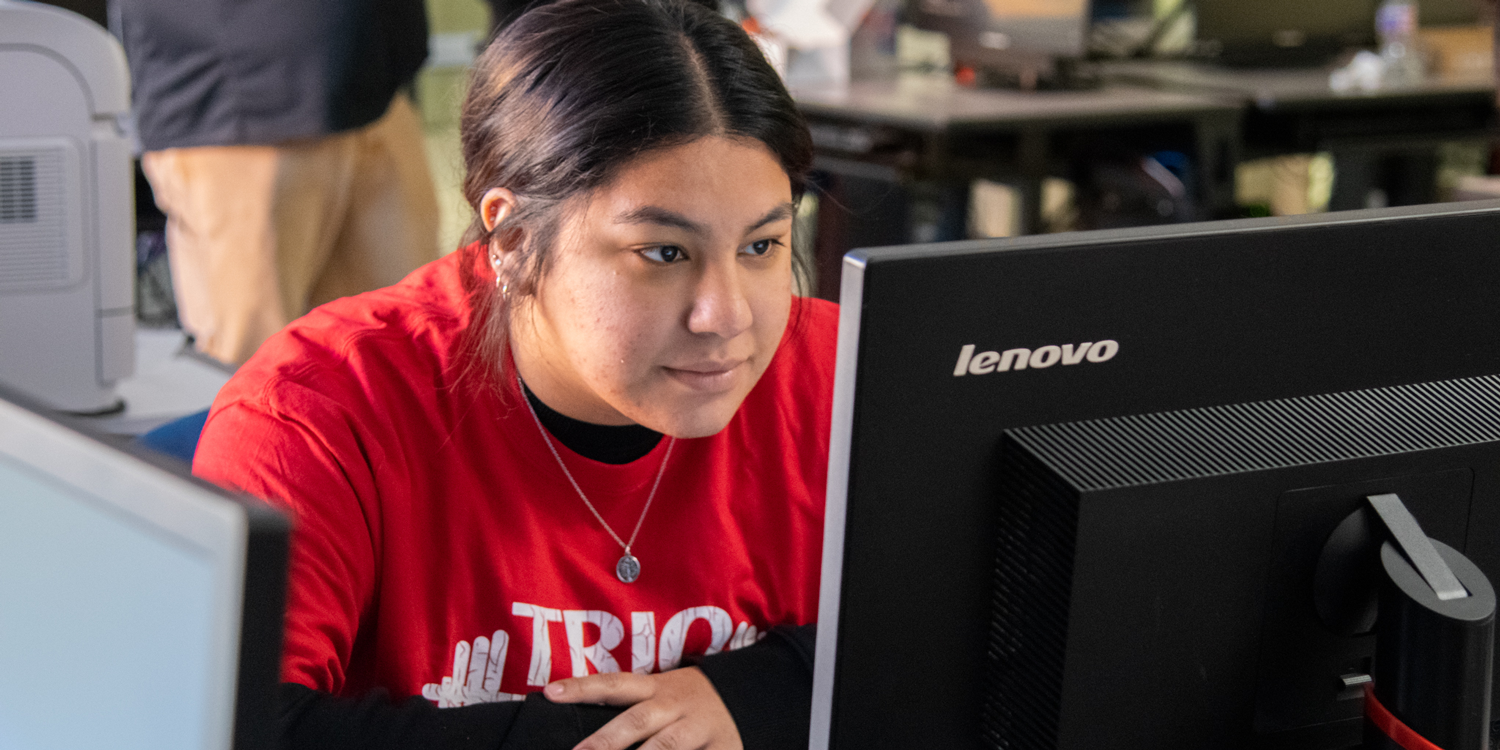Advising & Student Supports
CCRC studies how colleges can support students outside the classroom so they have the tools, guidance, and resources they need to earn a credential and plan for their future beyond college.
Fast Facts
High-quality advising and student support should be sustained, strategic, integrated, proactive, and personalized, or SSIPP.
Multifaceted support is especially important to the success of students from traditionally underrepresented groups.
Comprehensive student success programs that include strong advising and financial components, such as CUNY’s ACE and ASAP programs, increase costs per student but have substantial long-term benefits.
Nonacademic supports such as financial aid, emergency grants, and food aid can be essential for many students to stay in college and complete a program.
Why We Study Student Supports
Across the United States, community college graduation rates are too low. Intensive advising and supports—including reaching out to students when they are struggling—are key elements of programs that have been shown to be effective at helping students stay on track. The thoughtful design of advising and student support programs is especially important for addressing educational inequity. In many cases, however, advisors have large caseloads that limit the amount of time they can spend with students. Moreover, advising systems often function separately from other student service offices, including career counseling, and students may not have the support they need to address financial challenges, childcare and transportation struggles, and other issues.
CCRC research suggests that the best advising is sustained across a student’s college career. Under this model, advisors who are experts in specific academic areas are assigned individual students and regularly meet with them. The advisors help students choose programs and formulate personalized education and financial plans, identify and address their needs, and intervene when they struggle. Faculty and staff can also play a key role in helping students feel a sense of belonging on campus.
CCRC researchers are continuing to investigate improvements to student supports, including how colleges can support specific student groups such as first-generation students, English learners, adult students, and students from various racial and ethnic backgrounds. Other projects focus on academic tutoring, various models of financial support, and ways to effectively extend college advising to dual enrollment students.

Featured Project
CCRC is exploring the support networks and help-seeking preferences and behaviors of first-generation students at four public colleges in California.
How One College Used Technology to Boost Advising
“With iPass, I learned…not just to chase after an early alert and saying, "Okay you're missing class, go to class." [Instead] talk about "why are you missing class? What is going on in your life?”
Fred Bowen
Director of Academic Advising Systems, University of North Carolina at Charlotte
The Support Networks of First-Generation College Students
CCRC is using surveys and interviews to better understand who first-generation college students lean on for support. Whom do first-generation students turn to …
For academic support?
39% – friends from childhood or high school
33% – friends from college
31% – siblings
29% – academic advisors
21% – faculty members
For nonacademic support?
49% – parents
48% – friends from childhood or high school
38% – siblings
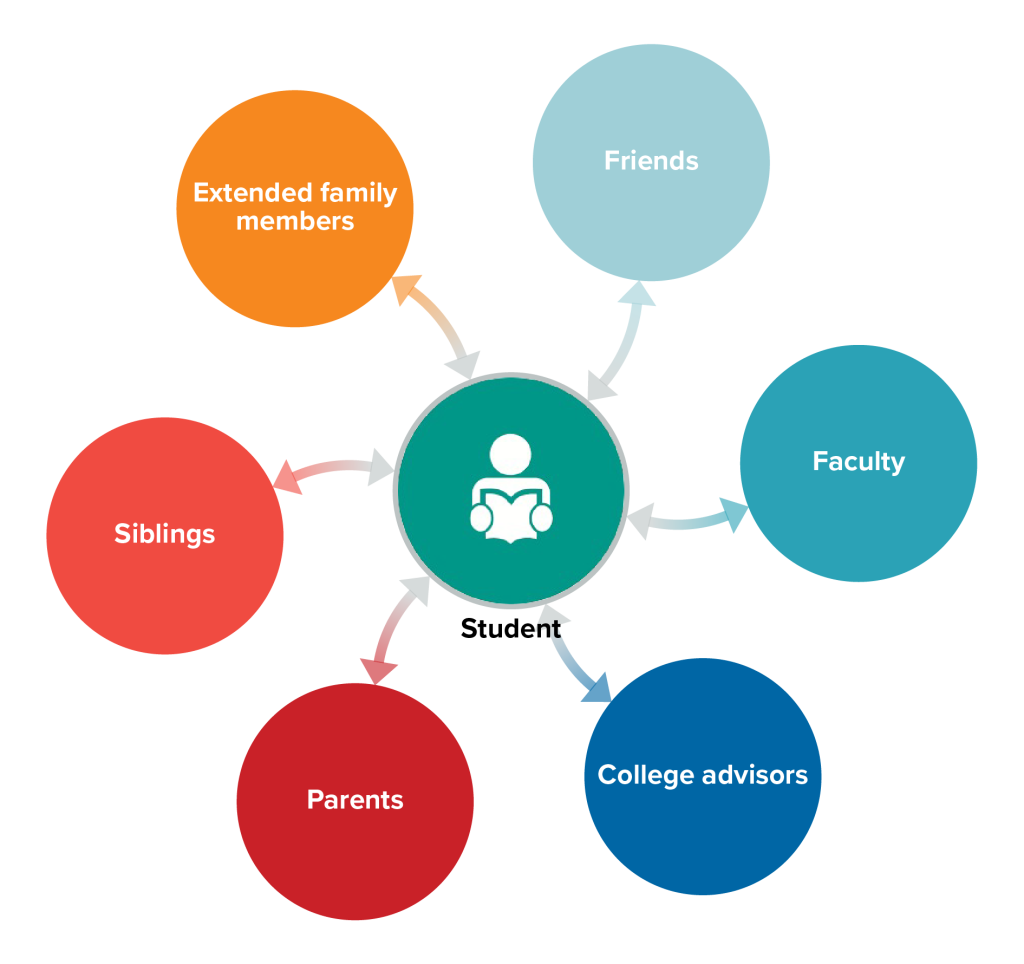
Principles of the SSIPP Advising Framework
CCRC research suggests that effective advising is based on a SSIPP framework.
- Sustained support of students throughout their tenure at college
- Strategic deployment of advising resources based on need
- Integrated with other student supports
- Proactive outreach to vulnerable students
- Personalized advising attuned to students’ needs and interests
Sample Guiding Questions in an Advising Toolbox
Colleges that participated in the iPASS project created resources that can be used by advisors to implement effective practices. These include questions that advisors can use in their conversations with students:
Further Reading
Advising and student supports
Related Research
Guided Pathways
Strong advising is critical when onboarding students in a guided pathways model to help them explore their interests and choose a course of study. Read How Ohio Community Colleges Are Using Guided Pathways to Personalize Student Support.
Reform Costs
Hiring additional advisors is a major piece of the cost of guided pathways reforms, along with student success courses. Ongoing operating costs total around $350 per FTE each year. Read The Economics of Guided Pathways: Cost, Funding, and Value.
ASAP
The ASAP program, which was developed in City University of New York community colleges and has spread beyond the city, emphasizes intensive advising to keep students on track. Read Scaling Success: Lessons From the ASAP Expansion at Bronx Community College.
Our Advising & Student Supports Experts
Read More
View all of our publications on advising and student supports.

